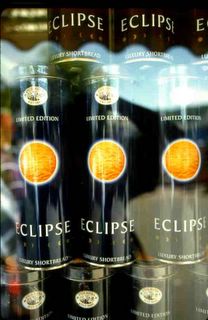
In this month’s Smithsonian, an article by Richard Panek tells about the year that Albert Einstein got on a roll and stayed there, revolutionizing science. In 1905, Einstein made a series of dazzling discoveries and set down theories and mathematical equations that tipped science on its ear and gave birth to modern physics. To celebrate the centennial of Einstein’ s most excellent year, physics organizations around the globe have dubbed 2005 the “World Year of Physics,” and Einstein and his body of work are getting lots of attention.
It was in 1905 that Einstein noted, in the little equation E=mc squared, that at the atomic level energy and matter can be transposable, an observation that gave birth to the nuclear age. The same year, with his theory of special relativity, the quiet scientist made the world rethink notions about the relationship between space and time held since Copernicus and Galileo had dared share educated guesses in the 16th and 17th centuries. True derring-do back then when the world was dealing with the shock of not being the center of the universe and a person could get himself killed for talking science.
But, according to Panek, it was in 1907 that Einstein began to noodle with special relativity, adding another dimension to it. Special relativity deals only with a resting body and a body moving at a constant velocity. Einstein’s brain seized on the challenge of explaining the relationship between a resting body and a body whose movement accelerates. He took Newton’s laws of gravity and rethought them, postulating that acceleration and gravity are the same force. It took Einstein eight years to develop the mathematical sentences for his new theory of general relativity. Once he had the math, he needed a solar eclipse to prove his theory, as the eclipse would enable observation of gravity’s effect on light, key to his hypothesis. A solar eclipse on May 29, 1919 did the trick, and Einstein changed human thought, became a household word and made science synonymous with a mustachioed man with lucid, popping eyes and white, wild hair.
Good thing proof of Einstein’s Theory of General Relativity didn’t hinge on the solar eclipse of 1999. We might still think apples falling from trees tell us everything we need to know about gravity.
We were in Cornwall, England, enjoying a family vacation. In planning our trip, I’d been clueless about the total eclipse of the sun due to be visible over Cornwall on August 11, 1999. As soon as we landed in England, we were bombarded by eclipse things – posters, radio chat, TV broadcasts, bumper stickers, street conversation, t-shirts, tins of “Eclipse” cookies arrayed in eye-catching store window displays (above). Anticipation of the event eclipsed nearly everything else.
We drove to Cornwall, and frenzy heightened. Signs on the motorways read, “Solar Eclipse – Expect long delays on route to the South-West 6-11 August.” Cars heading to Cornwall clogged the roads.
Once in Cornwall, we stocked up on groceries at the Safeway in Liskeard before making our way through seaside Looe to Polperro, where we’d rented an apartment. Safeway cashiers handed out flyers detailing plans the supermarket had made to accommodate the community’s needs when the expected “over a million visitors to the area” descended at eclipse time. A sign posted at a Tesco food shop near Penzance informed shoppers that the store would close “for 2 hours on August 11 from 11-1 pm in order that our staff may enjoy the eclipse.”
At the Bronze Age Duloe Stone Circle, a homemade sign nailed to a gate announced a special eclipse gathering to be held at the Neolithic site (robes optional). At Duloe, Mike concentrated on negotiating the minefield of mutton manure, Adam put his sweatshirt hood up and ran around pretending to be a Druid, and Dana chased sheep. I read the gravestones in the nearby 14th-century church cemetery, including one honoring a 20-year-old boy who “Unfortunately Drown’ed in The Shallow Pool and was Swallowed by The Deep.”
We left Europe on August 8. Back home, I monitored the eclipse reports on August 11. The eclipse was a bit of a bust. National Public Radio announced that “cloud cover made the eclipse invisible” to the millions who’d gathered in Cornwall to view it. (Click here for Martin J. Powell ‘s great account of what it was like to not see the eclipse.)
When I heard that clouds had totaled the eclipse and all those folks we’d met and seen had seen nothing, I figured they’d handled the celestial raw deal with characteristic stiff upper lip and good humor. “Well, then, that’s that, isn’t it?” I imagined them saying as they smoothed out their eclipse t-shirts, popped another eclipse biscuit into their mouths and loaded their folding chairs into the boots of their cars.
What would Einstein have done?
